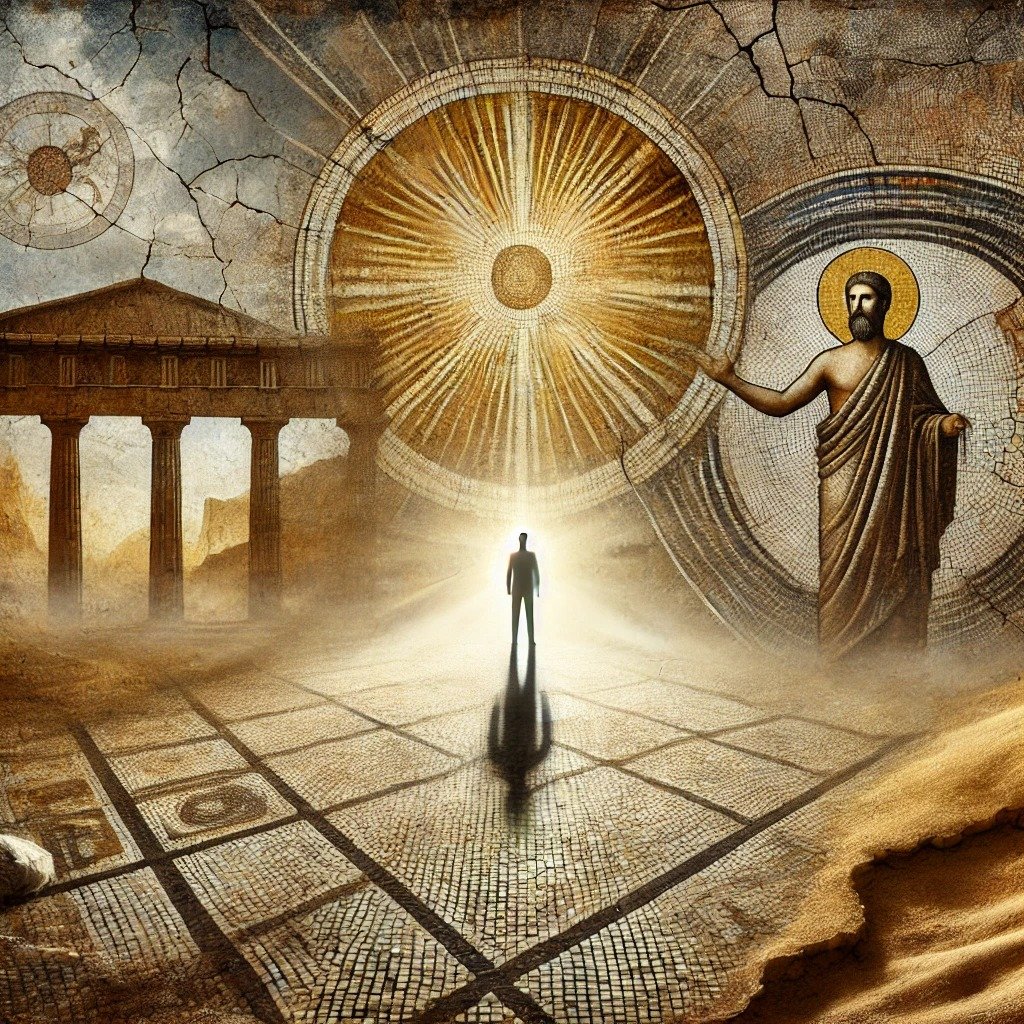“Paul of Tarsus” stands as one of the pivotal architects of early Christian thought, yet his portrayal of Jesus starkly contrasts with the later developments in Christian theology. Paul’s Jesus, as depicted in texts like 1 Timothy 2:5 (“For there is one God, and one mediator between God and men, the man Christ Jesus”), emerges as a unique fusion of humanity with the Greek Logos, distinct from the more complex Trinitarian framework that later defined Christianity.
This post looks into how Paul’s vision diverges from the Christianity that followed, reflecting a profound philosophical and theological shift.
Paul’s Christology: The Logos-Infused Mediator
In Pauline theology, his Jesus is first and foremost a man infused with the Greek concept of the Logos. The Logos, understood as the divine rational principle underlying the cosmos, inhabits his Jesus through the Spirit, rendering him an adopted vessel of “divine” purpose. This perspective resonates with Colossians 2:2, where Paul speaks of “…the mystery of God, and of the Father, and of Christ”—highlighting a distinction between God the Father and his Logos-imprinted Christ.
Paul’s Jesus bridges the supposedly divine and the mortal, not by innate divinity but by the transformative power of “the Spirit.” The emphasis lies on Jesus’ mediating role, as seen in 1 Timothy 2:5. This underscores a functional Christology—Jesus as the intermediary who reconciles humanity with God through his Spirit-infused humanity. This perspective preserves the monotheistic framework of Judaism while introducing a Hellenistic philosophical nuance.
Post-Pauline Christianity: The Emergence of a Divine Christ
As Christian theory evolved, so did its understanding of the Jesus charcter. By the time of the Nicene Creed (325 CE), the notion of Jesus as co-eternal and consubstantial with God the Father had crystallized. This Trinitarian doctrine presented Jesus not merely as a mediator, but as an inherent part of the Godhead (God the Logos and God the Father). Such a transformation marked a significant departure from Paul’s portrayal.
This evolution can be traced back to Christianity’s engagement with Greco-Roman philosophical traditions and its need to assert theological supremacy amidst competing religious systems. Early Christianity inevitably absorbed elements from its religious milieu, reinterpreting the Logos concept not as an infusion but as an eternal aspect of Jesus’ divine nature, thereby creating an entirely new Jesus from the one invented by Paul.
Key Differences Between Paul's Theology and Later Christianity
1. Humanity vs. Divinity:
o Paul: Jesus is a human mediator, adopted and empowered by the Logos.
o Later Christianity: Jesus is co-equal and co-eternal with God.
2. The Role of the Logos:
o Paul: The Logos transforms Jesus (when an adult man) into the mediator.
o Later Christianity: The Logos is fully embodied in Jesus (since birth) as a pre-existing divine entity.
3. Focus on Functionality:
o Paul: Emphasizes Jesus’ role as a bridge between God and humanity.
o Later Christianity: Focuses on Jesus’ ontological nature as part of the Trinity.
Philosophical Implications of the Divide
Paul’s theology roots itself in the “mystery of God”—a dynamic interaction between the Greek Logos and the human. By contrast, later Christian orthodoxy emphasizes ontological sameness within the Trinity, reducing the functional distinction Paul highlights. This shift from a relational to a metaphysical understanding of Jesus reflects broader philosophical trends in late antiquity, where abstract metaphysics often overshadowed the experiential and existential.
Paul’s Jesus operates within a framework of “divine” adoption, reminiscent of the Stoic idea of living in harmony with the Logos. The later Christian Jesus, however, embodies the Platonic ideal—an unchanging and eternal “divine essence.” These differing Christologies reflect the theological and cultural priorities of their respective eras: Paul’s immediate and pragmatic vision versus the later church’s quest for universal doctrinal coherence and supremacy.
The Mystery
Paul’s emphasis on the “mystery” (“mysterion”) of Christ points to an experiential faith, one that invites believers into the personal unfolding of revelation and wisdom. The later institutionalization of Christianity moved away from this participatory “mystery” towards fixed dogmas. Paul’s vision is ultimately a reminder of a faith that sought to transcend rigid religious systems, inviting continuous dialogue with what was believed to be divine.
Case, S. J. (1914). Christianity and the mystery religions. The Biblical World, 43(1), 3-16.



